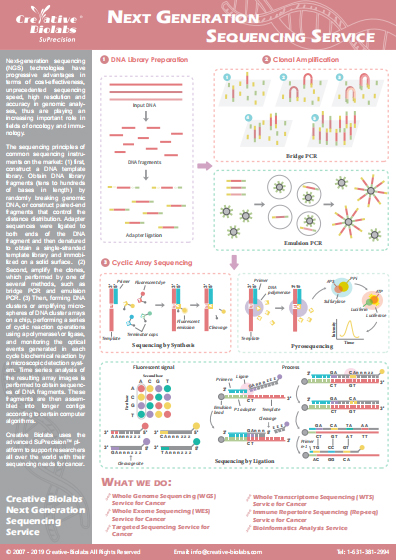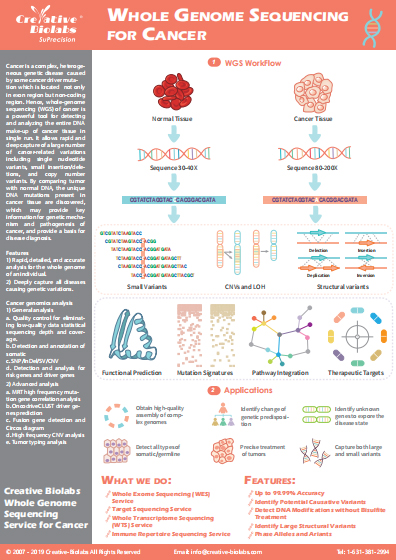
Minimal Residual Disease (MRD) Monitoring Service
Equipped with world-leading technology platforms and professional scientific staff in next-generation sequencing (NGS), Creative Biolabs has developed a cutting-edge SuPrecision™ platform. Based on this platform, our scientists have accumulated extensive experience in whole exome sequencing (WES) for minimal residual disease (MRD) monitoring. We are proud to introduce this cutting-edge MRD monitoring service to all our global customers.
-Monitoring-Service-1.jpg)
The Background of MRD
MRD refers to low-level disease detected in a whole variety of clinical situations. It is used to describe residual disease after suboptimal induction chemotherapy, but at the same time refers to the lowest levels of disease potentially compatible with cure or to molecularly defined relapse after long-term remission. In addition, the risk of relapse may be better defined with the use of tumor-specific molecular markers as targets for detection of submicroscopic levels of the tumor after therapy. The presence of MRD can provide powerful prognostic information independent of other risk factors.
Current Methods for MRD Monitoring
Quantitative real-time PCR (qPCR) is a sensitive technique to detect small numbers of tumor cells in blood or bone marrow. Currently, qPCR based MRD detection is based on specific RNA markers. However, the expression of RNA markers can vary between patients, and these markers may be unstably expressed during treatment. Moreover, mRNA levels are measured but not absolute cell numbers. Since DNA is more stable than RNA and does not depend on levels of gene expression, a tumor-specific DNA MRD marker would be an interesting alternative. Tumor-specific genetic alterations are ideal markers to stage malignant disease at diagnosis, to monitor the response to therapy, and to detect relapse at an early stage. The DNA markers are more suitable for MRD monitoring, because these markers are truly tumor-specific and do not depend on levels of gene expression. DNA markers are reliable and stable MRD markers, making MRD a highly tumor-specific and patient-specific technique.
-Monitoring-Service-2.jpg)
MRD Monitoring Service at Creative Biolabs
There is growing interest in whether prognostication can be improved through more extensive molecular profiling, which has been realized by WES. WES in Creative Biolabs provides coverage of more than 95% of the exons, which harbor the majority of the genetic variants associated with disease phenotypes. Genomic DNA libraries that had been prepared are sequenced on our advanced SuPrecision™ platform with 100-bp paired-end reads. Our scientists have developed an in-house bioinformatics method for MRD data analysis. This bioinformatics method can decrease the annotated data by about 10 times without using any in silico methods.
Key Advantages of MRD Monitoring Service at Creative Biolabs Include but Are Not Limited to:
- Advanced SuPrecision™ platform
- 100-bp paired-end reads
- In-house bioinformatics method, without using any in silico methods
- Extensive experience in MRD analysis
- Fast turnaround time
As a leading service provider in NGS, Creative Biolabs can provide tailored WES service for MRD monitoring to suit any project of our global customers. Please contact us for more information and a detailed quote.
Resources
Infographics
Podcast
- TMB Analysis for Checkpoint Immunotherapy Response
- WES based Variant Analysis
- WES based Structural Variant Detection
- WES based CNV Detection
- WES based Tumor-Specific Neoantigen Discovery
- WES based Biomarker Discovery
- Personal Tumor-Specific Neoantigen Vaccine Development
- Microsatellite Instability Analysis
- Immune Repertoire Germline Gene & Allele Identification
- One-Stop Cancer 3D Modeling
- Circle-Seq based eccDNA Identification
- RNA-Seq based Tumor Microenvironment Analysis




